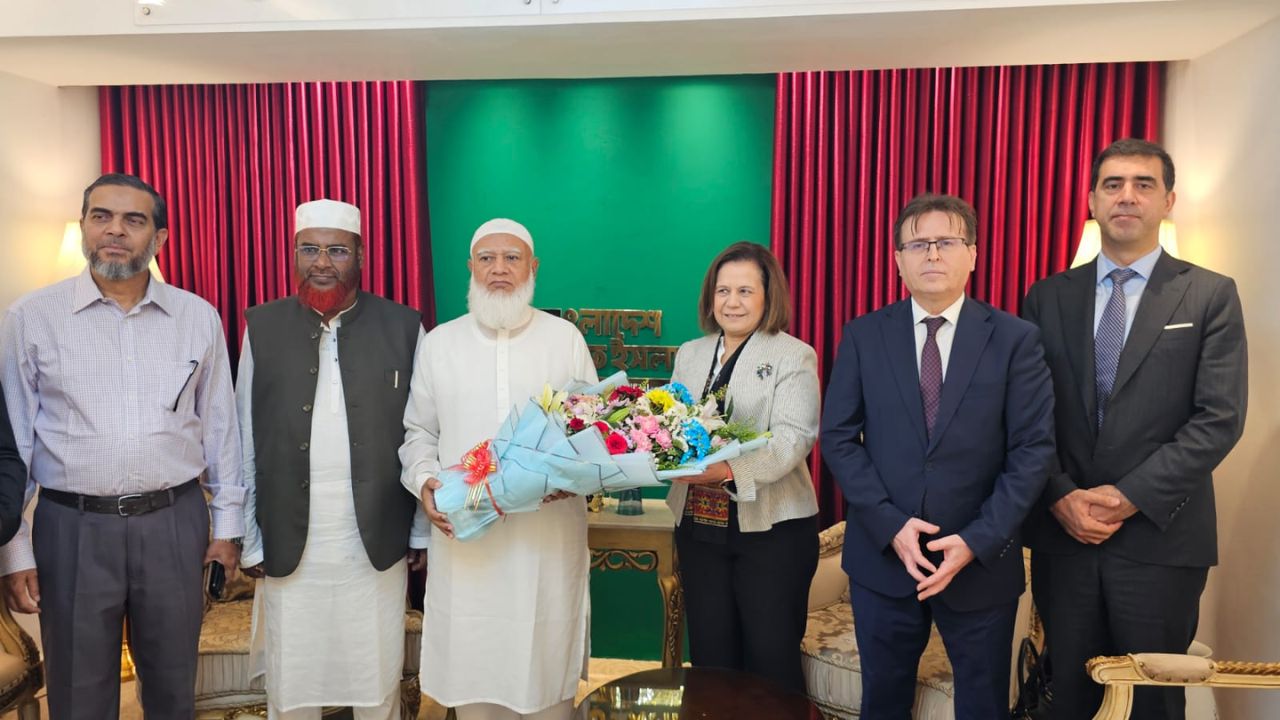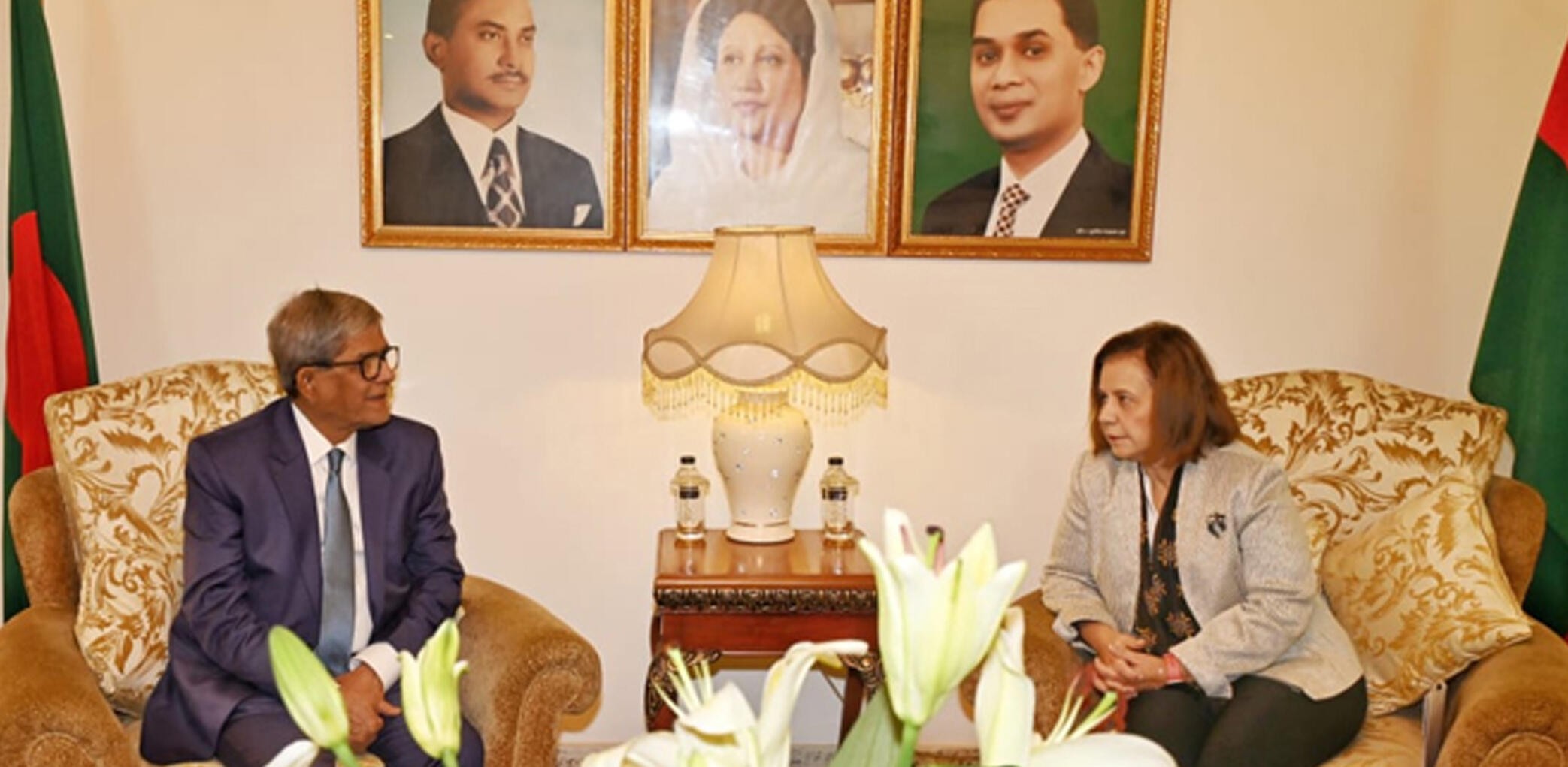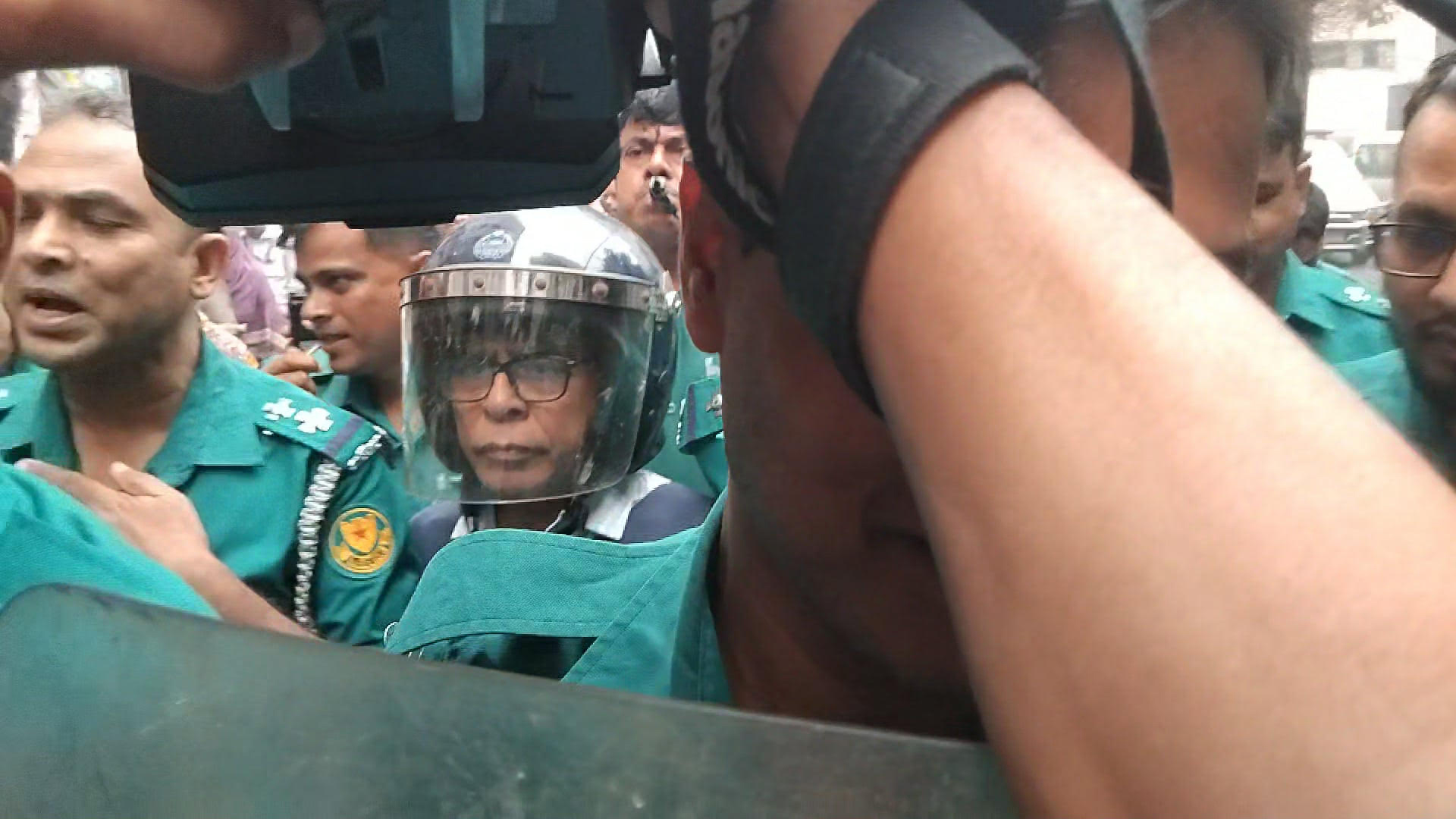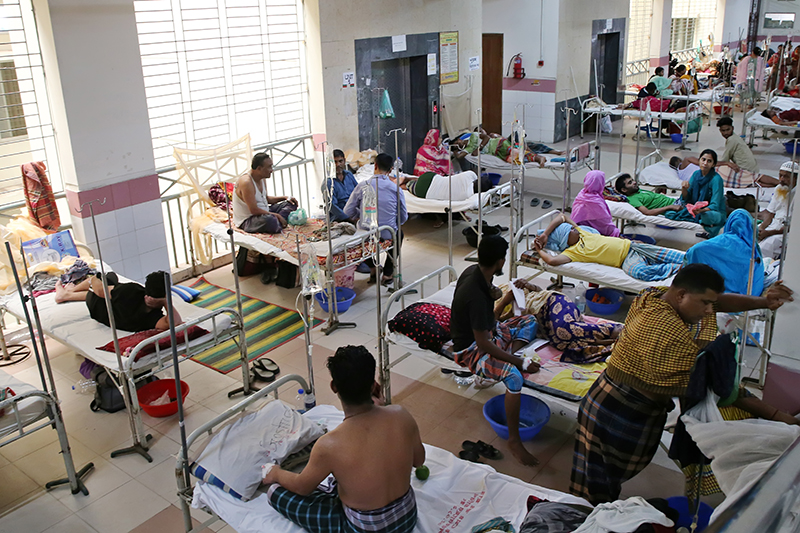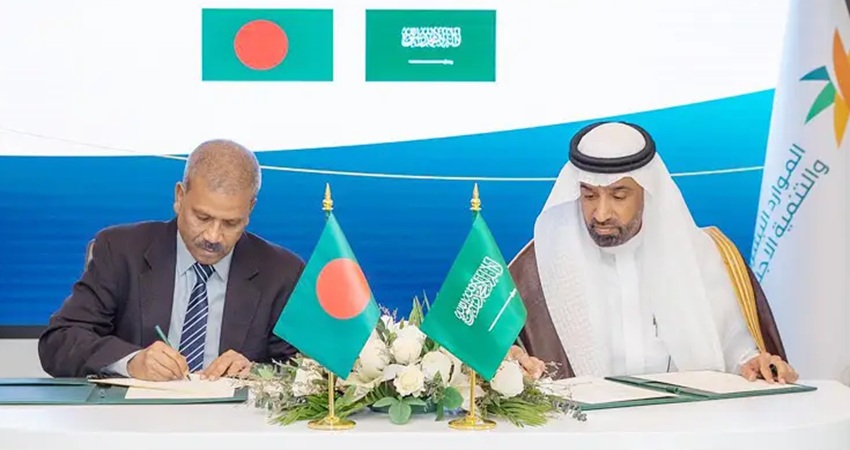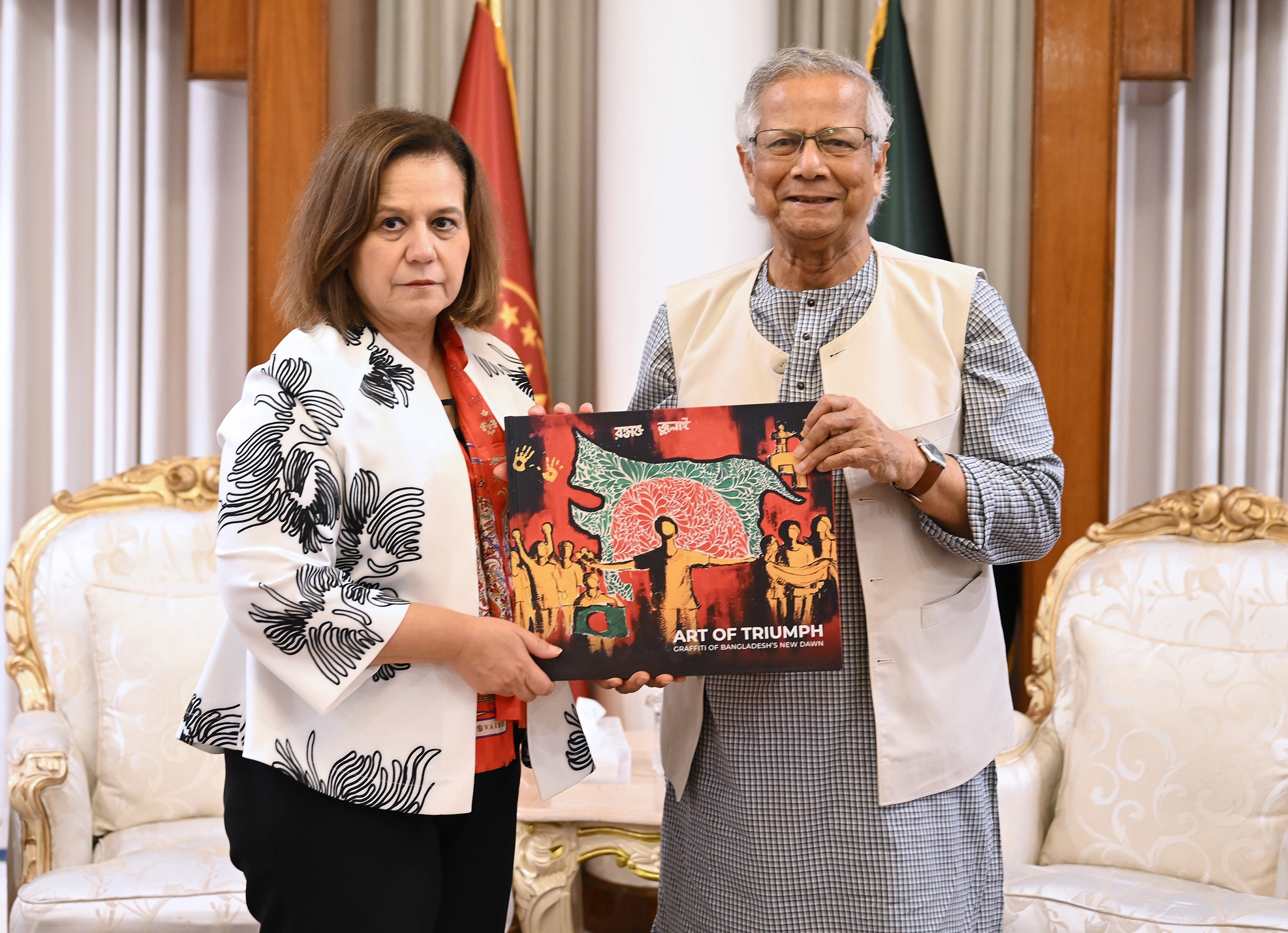
Tarique Rahman finally breaks media mute
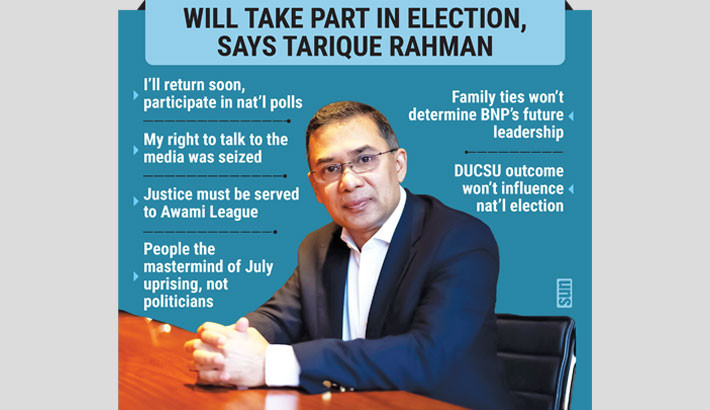
Bangla Press Desk: BNP's Acting Chairman Tarique Rahman has opened up to the media for the first time in about two decades and discussed elections, politics, and other issues.
In an interview with BBC Bangla, he confirmed that he would take part in the 13th parliamentary election.
The first part of the interview was published on BBC Bangla’s website on Monday morning, and the second part will be out today.
“For some obvious reasons, maybe, my return has not happened yet. However, I think the time has come and I’ll come back soon,” he said.
Tarique, who has been living in London for nearly 18 years, said he was always thirsty for a free, fair election in Bangladesh as a politician and a citizen.
“How can I stay away from it when an election happens as per the people’s wish?” he asked.
The 58-year-old BNP leader said, “Physically I may have been in the UK. However, with all my mind and heart, in every way, I have been in Bangladesh for the last 17 years.”
Asked why he had not spoken to the media for so long, Tarique replied, “Maybe it is not like that. Maybe the matter is a bit different. Actually, I have spoken. I have been living abroad for 17 years. But since I got the responsibility of the party, I have been speaking to my leaders, activists, and different groups of ordinary people in villages and towns.
"You surely know that during the time of the past fascist government, an order from the court stopped my right to speak. If I wanted to say something to the media, maybe the media wanted to publish it, but they could not," he said.
Asked why he has not yet returned to the country even though a year has passed since the mass uprising, Tarique said, “For some valid reasons, perhaps my return has not yet happened. But I feel the time has come, Inshallah, I will return very soon.”
In response to another question about his return, the BNP’s acting chairman said, “Politics and elections are inherently tied with political parties and political activists. Since I am in politics and consider myself a political activist, how can I stay away when there will be a people’s anticipated election? I will make every possible effort, I will have the intention and the interest, that when the people’s much-expected election is held, I will be with the people, among the people, Inshallah.”
Regarding not being able to speak in the media, Tarique Rahman said, “During the previous authoritarian government, the court issued a formal order that effectively stopped my right to speak. If I wanted to say something to the media, perhaps the media wanted to publish it, but they could not.”
He added, “I once spoke at the Press Club. The next day, I saw that the members or committee of the then Press Club held a meeting and decided that since I was legally considered a fugitive, such a person should not be allowed to speak at the Press Club. In this way, they tried to silence me. But I did speak — through social media and various other means. I tried to reach the people, and Inshallah, I have reached them.”
“So, it is not that I did not speak in the media — I did. Perhaps you could not receive it or could not hear it, or even if you wanted, you could not publish or broadcast it. But I did speak, and I did not remain silent.”
In the interview, he also said that the people of Bangladesh and no political party or individual were the masterminds behind last year’s anti-fascist uprising.
Instead of claiming credit for leading the movement, all the political parties, the interim government and others should stand beside the people who suffered for joining the movement against the Awami League regime.
The politicians and government should work to support the families of around 2,000 people martyred in the movement, and the 30,000 others who suffered losses in various forms, including loss of limbs, he said.
BNP’s Acting Chairman Tarique Rahman said that any wrongdoing by the Awami League as a party must be addressed in accordance with the country’s laws.
“The country’s law will decide. Wrongdoers must face justice — whether that is an individual or a party,” he said.
“Those who have committed oppression must be brought to justice. It could be an individual, or it could be a party,” he added.
Asked about his thought regarding the ban of Awami League, he said, “I think I have answered similar questions before by saying that we do politics for the people. We believe – and we often say – that for us in BNP, the source of all political authority is the people. I firmly believe, and I want to believe, that those individuals or that party which kills people, disappears people, murders, loots the wealth of the people, and smuggles it abroad – I do not believe the people can support them.
“If the people do not support any political party or political organisation, then I see no reason for their survival. Since we believe in the power of the people, we believe in the people’s decision. We want to place our trust in the people’s decision. In this matter, I think the greatest judge is the people.”
BNP’s Acting Chairman Tarique Rahman has said that during the previous authoritarian government, a formal order from the court had effectively taken away his right to speak.
“I once spoke at the Press Club. The next day, I saw that the then members or committee of the Press Club held a meeting and decided that, since I was legally considered a fugitive, such a person would not be allowed to speak at the Press Club. In this way, they tried to silence me,” he added.
Family ties will not determine BNP’s future chiefs
Asked about his family members taking part in politics, he said, “Politics is not inherited or determined by family…Whoever can organise, unite the people, and unite the party to move forward will be able to advance. If someone cannot do that, they will not be able to move forward. Time and circumstances will reveal everything,” he said.
In the extensive interview, he also presented BNP’s stance on other issues, including the party’s strategy for the upcoming election, the politics of the Awami League, trials of its leaders and activists, Bangladesh’s election-centered politics, and other contemporary matters.
Khaleda Zia to play role in upcoming national polls
Tarique Rahman said the BNP chairperson and his mother Khaleda Zia is a person who has contributed to democracy in Bangladesh every time democratic rights were undermined. She has always worked to restore and strengthen democracy.
Even recently, everyone witnessed how, during the autocratic period, she faced extreme persecution. Yet she did not compromise. Today, such a person is unwell. She became physically ill, was dragged into prison through false cases, and was denied proper medical care.
“We saw her leave as a healthy person. But when she returned, she was unwell. She was even denied access to treatment. The people of Bangladesh are aware of all these events,” he said.
Tarique further said “Despite all this, given her immense contribution to establishing democracy in Bangladesh, as a party member, I believe — and want to believe — that in the upcoming, widely anticipated election, she will, to the extent her physical capacity allows, play some role.”
DUCSU outcome won’t influence national elections
Tarique Rahman has stated that the outcome of the Dhaka University Central Students’ Union (DUCSU) election will not influence the country’s national politics or upcoming national elections.
Tarique Rahman described the DUCSU polls as a “good initiative” and a “good start” for democratic practice in Bangladesh. He offered congratulations to all newly elected DUCSU members and extended good wishes for future student representatives.
“I think the DUCSU election is a good initiative for the democratic journey. It is a good start,” he remarked.
Despite his positive assessment of the election as a “breakthrough” in the nation’s democratic process, Tarique voiced concern over the controversies raised following the polls. He hoped that future polls would be free from such disputes.
When questioned on the potential impact of the DUCSU results on the wider political landscape, the BNP leader dismissed the notion. Citing statements from experienced politicians in the media, he asserted that the results would not affect national elections or national politics.
“Student politics is in the place of student politics, national politics is in the place of national politics,” he concluded.
Meanwhile, in another interview with the Financial Times, Tarique said, “We strongly believe that we are in the position to form the government alone.”
Whoever leads the next government of Bangladesh will have to confront a fragile economy, with the country’s vital garment sector hit by US tariffs, and a damaged relationship with neighbouring India, where Sheikh Hasina has fled.
Tarique is widely expected to emerge as a prime ministerial candidate after the February vote, with polls showing the BNP is the frontrunner.
He also outlined some aspects of a future economic programme for the country of 170mn, including diversifying away from garment exports by becoming a “supply hub” for online retailers such as Amazon, eBay and Alibaba.
He also said he would pursue a “Bangladesh before all” foreign policy with India, which has historically backed Sheikh Hasina, to reset what he described as a “one-sided” relationship.
“If they are convicted as criminals, then how can the Awami League contest the election?” he asked, referring to leaders of the party facing charges in the country.
If elected, he would continue the Yunus administration’s effort to recover billions of dollars that it alleges people close to Hasina, he said.
He said that “false narratives” shared by Bangladeshi media outlets had “formed the basis of the US cable”, and noted that all of the cases against him had since been dropped.
BP/SP
YOU MAY ALSO LIKE

